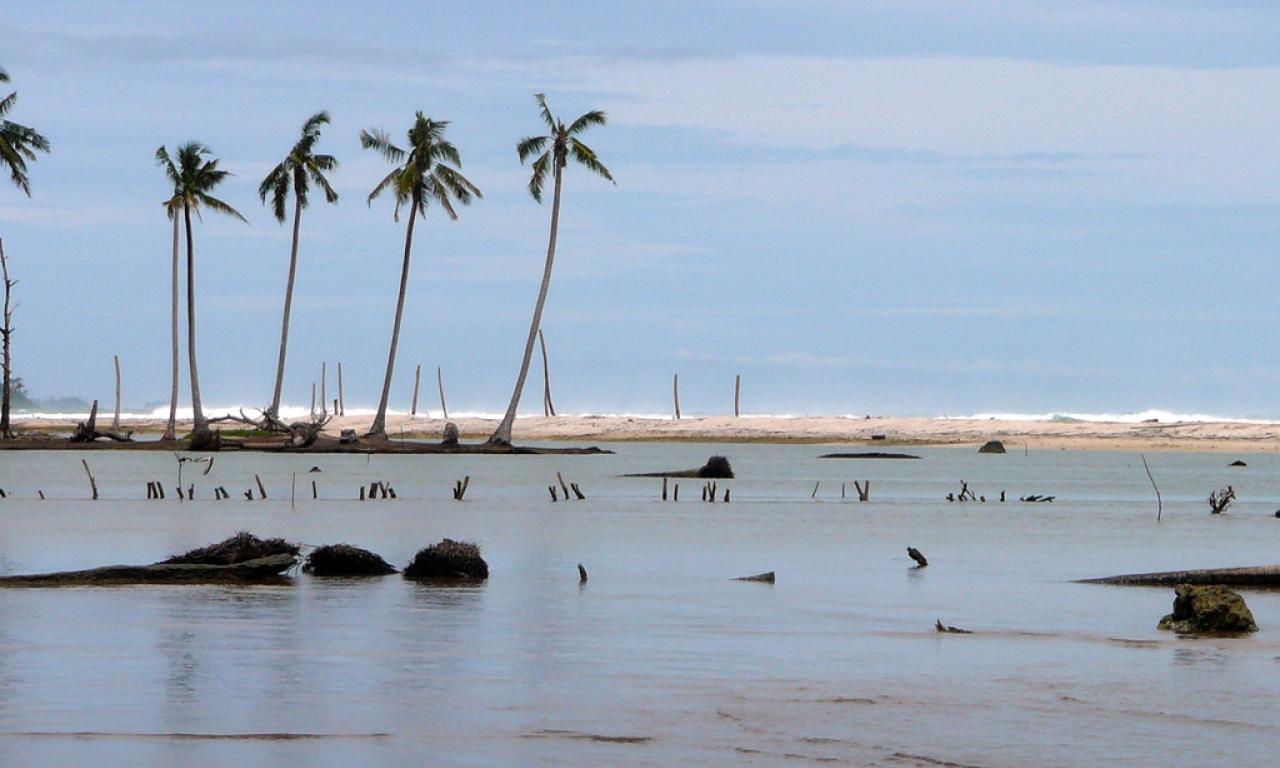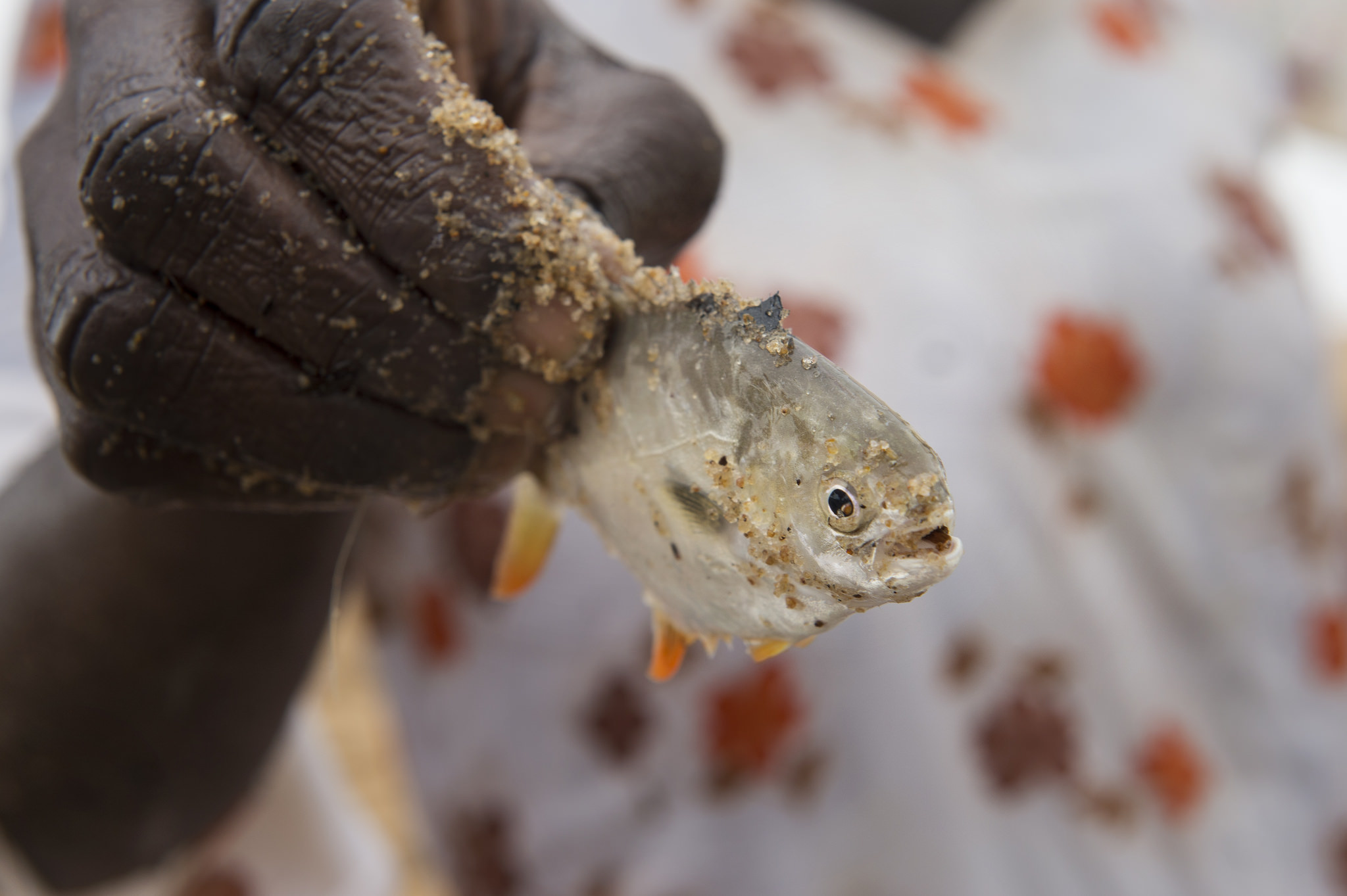
Following devastating floods in the southern Indian state of Kerala, Keralite and WorldFish Honorary Fellow John Kurien reflects on the heroic role played by fishermen in the rescue operations.
Recommended publications
- Illuminating Hidden Harvests: The Contribution of Small-scale Fisheries to Sustainable Development
- Supporting community-based resource management in Solomon Islands: The role of provincial governments
- Communication strategies for managing coastal fisheries conflicts in Bangladesh
Following devastating floods in the southern Indian state of Kerala, Keralite and WorldFish Honorary Fellow John Kurien reflects on the key role played by fishermen in the rescue efforts.
There is a social media post doing the rounds in Kerala. A picture shows a fisherman wearing a red flowing cape standing beside a boat on which the map of Kerala rests. In the background is a green-tinged sea and sky. The text above the picture reads, ‘Hollywood has spider man, batman, iron man but we Keralites have all under one name—fishermen.’
Some may consider this post an exaggeration, considering that hundreds of people from across the social spectrum—students, professionals, armed forces personnel and ordinary individuals, to name a few—have been involved in rescue efforts in the worst flooding in the state in a century.
What is so special about the involvement of fishermen that makes them the unsung heroes of the crisis? Navy officials, the press, social media, politicians of every hue and thousands of people who were rescued have only praise for the efficient, selfless service rendered by the marine fishermen at this difficult time.
Marine fishermen (as distinct from the women in their communities) are rarely seen in such large numbers in the inland areas of Kerala where they undertook most of the rescue operations.
This lack of visibility is primarily because their occupation takes them far out to sea, braving the waves to catch the fish without which most Keralites cannot enjoy their daily meal. When they get back from work, they have jobs on the coast like mending nets and inspecting engines for the next day’s trip, leaving little time for interaction with mainstream society. Therefore, their unexpected presence inland took many by surprise. For some flood victims, it was the first time they had ever seen marine fishermen at close quarters.
Well over 500 boats and nearly 1000 fishermen were involved in the rescue operations, which were widely covered by the traditional and social media. Their contribution to the rescue of large numbers of people marooned in Central Kerala is unprecedented.
One revealing post on social media is a confession of sorts: ‘My tuition master used to jokingly say that if I did not study I would end up as a fisherman. But this prejudice changed today when I heard that my cousin was rescued by fishermen from a luxury apartment building. They refused to take a bundle of money offered by her, saying she was like their own sister. My sister said she cried her heart out.’
Kerala’s unsung heroes
With the floodwaters receding, the fishermen have returned to their homes. Many of their boats were damaged by debris hidden below the water, and some fishers sustained minor injuries. But all this paled in comparison with the deep satisfaction of having been able to offer a helping hand using their unique assets—boats, motors and GPS—and unmatched skills in a watery terrain. Many of the fishermen even brought their own initial stocks of fuel and paid for the costs of transporting their boats by road to the flooded districts.
Political parties are now competing to honor the fishermen. But are flowery speeches an adequate expression of our gratitude to these unsung heroes?
Marine fishermen face the caprice and wrath of nature on a daily basis. Theirs is a livelihood with a high degree of occupational risk. Data shows that a fisherman’s life is lost at sea in Kerala every four days. Added to this, the threat of the sea washing away their homes has sharply increased in the last couple of years due to a combination of natural and human factors.
Moreover, the state’s coastal fishing communities have only recently recovered from Cyclone Ockhi in December 2017, when more lives were lost at sea than in the current floods. The response of Kerala’s civil society to the aftermath of Ockhi was at best lukewarm. Non-fishers will never be able to rescue fishers in times of trouble at sea. Even qualified agencies like the coast guard and navy were constrained by their delayed response time, strict protocols and inadequate facilities.
Adequate recognition
If the fishermen of Kerala, despite being from the lower rungs of India’s socio-economic ladder, have proven their innate skills, magnanimity and speed in a time of crisis, we Keralites owe them more than words of thanks and khadi shawls.
It is clear then that the citizens of Kerala must do something for the fishers who helped them. Here are a few suggestions that could perhaps be a more fitting thank-you.
First, a proper local-level assessment should be made of all the damage to the boats of fishermen who aided the rescue effort. Quick assistance must be rendered to them so they can get back to fishing as soon as possible.
Second, the damage to houses on the coast—particularly to the homes of fishermen who helped in the rescue—should, as a priority, be compensated from the government’s Disaster Relief Fund.
Third, the government and disaster management authorities in Kerala, who tend to view the fishing community as permanent recipients of relief measures and disaster aid, should pick volunteers from among the community and recognize them as a skilled cadre of permanent disaster response teams.

Fourth, recognizing that there is no alternative to the traditional skills of fishers, agencies such as the coast guard and the national and state disaster response teams should have statutory provisions to recruit youth from these communities. These recruits may not have high educational qualifications, but their skills will prove invaluable in crisis situations like the recent floods.
Fifth, there should be more formal government recognition of the heroic efforts of fishers in the rescue operations. World Fisheries Day on 21 November would be an appropriate occasion.
Finally, a recording of the fishers’ rescue stories from different parts of Kerala should be undertaken by an appropriate agency like the Kerala Council for Historical Research. Institutional memory of crisis events—something India critically lacks—would serve as an imperative guide for the future.
Taken together, these measures could be a good way for us to really repay the community that rose to the occasion to become our superheroes despite their own neglected status in society.
